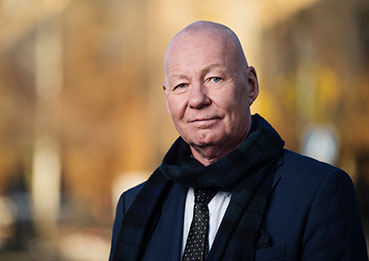The government has recently presented the Research and Innovation Bill for the current parliamentary term. It bears the promising title ‘Research and Innovation for the Future, Curiosity and Benefit’.
The bill means that a total of SEK 6.5 billion will be allocated to Swedish research when the initiatives are fully implemented in 2028. These are significant resources. Several important initiatives will go to STEM (science, technology, engineering and mathematics), infrastructure and research excellence. Life sciences, quantum, AI, space, batteries, cyber security and research infrastructure are some of the areas that will receive specific funding. In addition, several frontier technologies will receive funding opportunities.
It is good to see such a significant increase in funding at a time when many other policy areas are in need of increased funding. If you like, you can read the bill as part of Sweden’s response to an increasingly complicated world situation and growing tensions between Europe and the other major continents competing for global influence. Free basic research and success in translating research into application are also important instruments for freedom, democracy and independence!
Of course, there is always a Christmas wish list, and I thought I would share my higher education policy wish list with you this year.
In one package, I hope to see stronger core funding for university research and, in the longer term, greater control over resources so that we can take clearer responsibility for long-term and strategic funding of research.
This has not been fully included in the bill, although there is a significant increase in funding, albeit via external research funding bodies. KTH has traditionally been successful in this competition, and we are driven by excellence, so I am sure that the outcome will be positive for us in the long term, which is a good thing.
But the Research Bill shows that even the increase in basic funding is controlled to an extent that we are not used to, and it has to be said that this makes it more difficult for us to take responsibility and create long-term stable conditions for the most excellent research. So it’s a bit worrying that the proportion of external funding is increasing, and that the proportion that goes directly to universities is largely externally directed, so while it’s great to see large increases in funding for the sector, we’re concerned about the increased governance.
An alternative and freer way of running universities would fit well into another package. And just such an inquiry is announced in the Bill. The government writes that it will set up an inquiry to analyse the appropriateness of the form of authority we currently have for state universities. This is a good thing.
The third package I would like to see is a completely new model for the provision of premises to universities, which would free us from the stranglehold of the current model with Akademiska Hus.
If this was not in the package, there could have been a special compensation to offset the rising costs of premises in recent years. None of this is in the bill, so it is not so good.
Another thing on the wish list is more attention to the need for coordinated investment in research and innovation to create a broader strategic research and innovation agenda for Sweden. This is included in various parts of the bill, including under the heading of clusters of excellence for high technology, which is a good thing.
Efforts to increase the attractiveness and mobility of university activities are also on the wish list. A small package of this kind has also been included, with studies on migration law and proposals for changes to facilitate international recruitment. That’s good!
All in all, there were many gifts that went our way, even if some were missing. In any case, it’s now time to take a break and celebrate the holidays.
So I would like to take this opportunity to wish you all a Merry Christmas and a Happy New Year!

